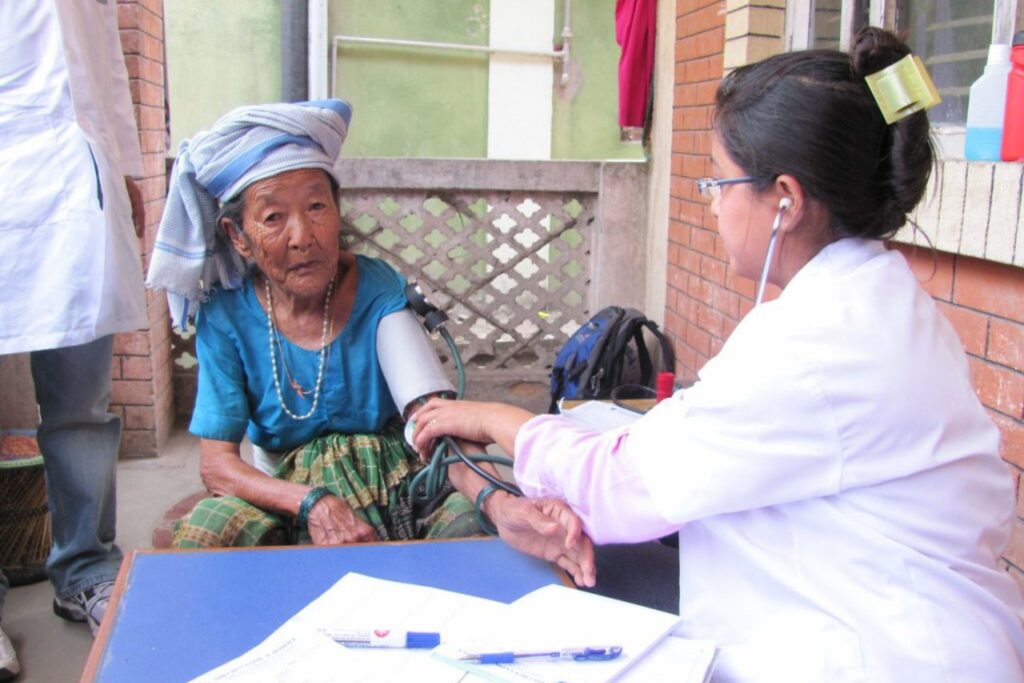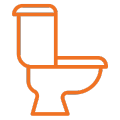Health and Hygiene
Saving lives and preserving the health of the most vulnerable
In both India and Nepal, the regions in which we are active are confronted with a significant lack of access to health care, both materially, geographically and financially.
One figure : A report by the World Health Organisation (WHO) reveals that 4.2% of India’s population, or more than 50 million people, fall into poverty every year because of high health costs.

Karuna Shechen ensures the development of appropriate solutions to save lives, alleviate suffering and preserve the health of the most vulnerable. Our clinics and health posts are open every day, without interruption, offering diagnostic, general, specialised and alternative medical services.
Prevention being the best medicine, our teams redouble their efforts to raise awareness among our beneficiaries about malnutrition, menstruation, maternity, breastfeeding and infantile diseases. Finally, we offer farmers ways to improve the health of their animals.
We work closely with local authorities to also intervene in remote community health posts through the provision of equipment and training of health workers.
Our impact in 2024

69 150 patients listened and cared for

7 870 animals treated

9 774 women and girls educated about menstrual hygiene

463 toilets built
One of our programs in India
Raising awareness, informing, protecting
In India, our healthcare services go beyond curative care: we actively promote prevention through regular awareness sessions and practical guidance.
Throughout the year, healthcare professionals conducted information sessions in villages, covering a range of essential topics: general medicine, reproductive and sexual health, mental well-being, hygiene, and maternal and child health. These sessions are paired with the distribution of essential supplies and access to medical consultations, responding directly to the needs of local populations while helping to break the stigma surrounding entrenched beliefs.
Some participants, by discussing with their families, help raise awareness within their communities. Despite societal taboos, this experience reveals the critical need to open dialogue around menstrual hygiene education. I feel immense fulfillment in contributing to the greater well-being of society.
Asifa Khatun, Health advisor in Bodhgaya – India